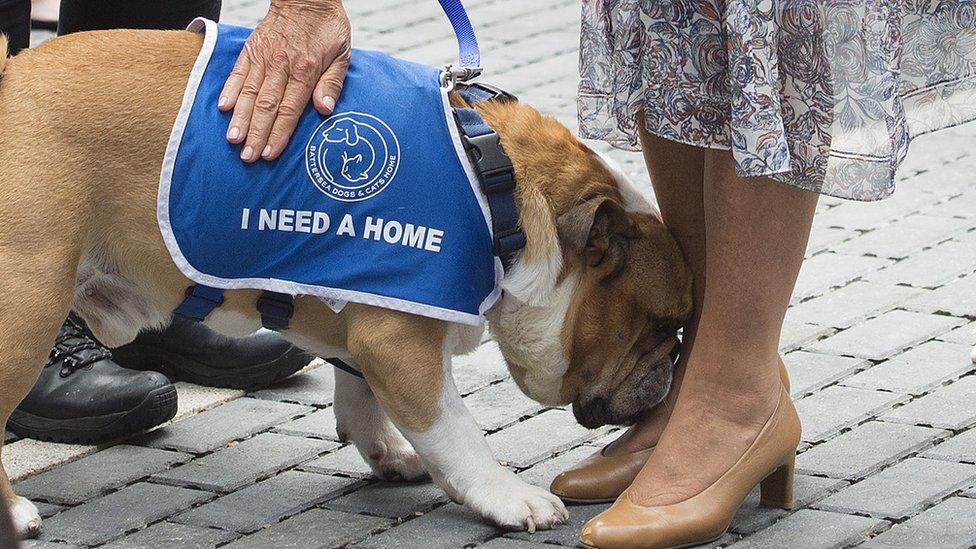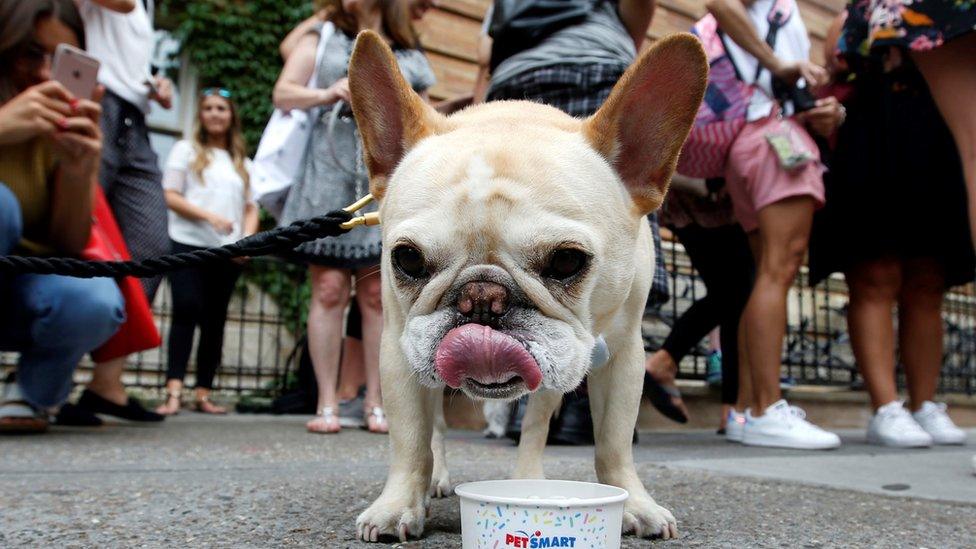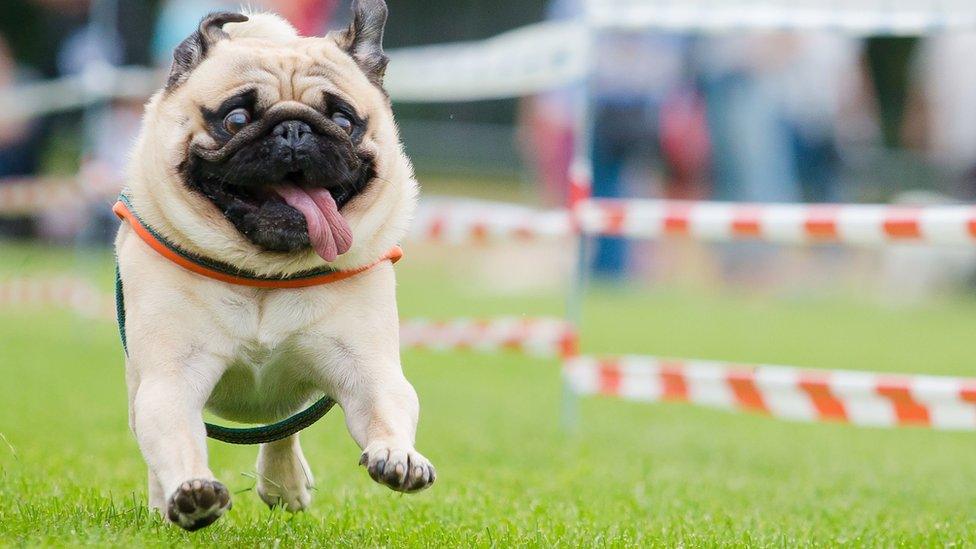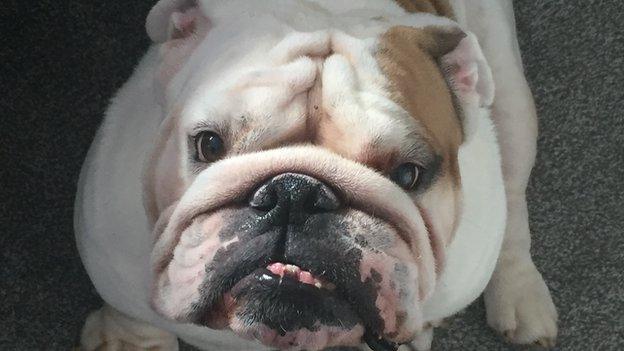Vets warn people against buying 'flat-faced' dogs
- Published
- comments
Winston needed surgery on his nostrils to help him breathe
Vets are warning would-be dog owners to think twice before buying breeds with fashionably "flat-faced" features because of concerns over their welfare.
Pugs, bulldogs, French bulldogs and shih-tzus have become sought-after in the UK, despite wide-ranging health problems.
Their appeal is attributed to having "squashed" faces and wrinkled noses.
The British Veterinary Association said the surge in popularity of these dogs had "increased animal suffering".
Sean Wensley, president of the British Veterinary Association (BVA), said: "Prospective owners need to consider that these dogs can suffer from a range of health problems, from eye ulcers to severe breathing difficulties.
"We strongly encourage people to choose a healthier breed or a crossbreed instead."
'He scratches his bulging eyes'
The warning has been echoed by the PDSA, the Royal Veterinary College, the RSPCA and the Kennel Club.
Meanwhile, evidence suggests that an increasing number of the dogs - more correctly known as brachycephalic or short-muzzled dogs - are being abandoned by their owners.
Six dog rescue companies told the BBC that the breeds were being given up in greater numbers.

Winston the bulldog, left by his owners at Battersea Dogs home, suffers from shortness of breath
Battersea Dogs Home and Bluecross Animal Rescue received a total of 314 "flat-faced" dogs in 2015, compared to 226 in 2014, an increase of 39%.
Both charities said they were carrying out more surgical procedures to clear the airways of the dogs they brought in - removing obstructive pieces of tissue and widening nostrils.
Steve Gosling, a vet at Battersea Dogs Home, said one of their dogs, Winston the bulldog, was a typical example.
He said: "He's a lovely little chap, about eight years old. He was left with us by his owners and, like many dogs from this breed, he suffers from what we call brachycephalic obstructed airways syndrome.
"In other words, because he has a really short nose that we've bred into him, he has quite serious breathing difficulties."
'Tip of iceberg'
Mr Gosling said the charity operates on dogs like Winston "quite regularly" because shortness of breath can be a very distressing condition.
He added: "And we don't want to re-home animals knowing that we can improve their quality of life."
A recent survey by the Royal Veterinary College suggests many owners of brachycephalic dogs are not aware of the common underlying health problems.
Caroline Reay, chief vet at Bluecross Animal Hospital in Merton, said: "Most owners - and some vets - think airway noise, and consequently reduced activity, is normal, so the problems are rarely discussed.
"And I think the number of operations we are carrying out is really only the tip of the iceberg".

Fashionable French bulldogs are among the UK's growing breeds
The extremely broad head shape seen in in pugs and bulldogs is not a natural look. It developed as a result of intense, selective breeding.
It has led the RSPCA to call for an urgent review of the breed standards, which are decided by the Kennel Club, and specify how every type of dog should look.
Caroline Kisko, the Kennel Club secretary, said: "The breed standards were set many years ago. If you look back through history there are some dire things that went on, and undoubtedly we would accept all responsibility for that.
"But I would say that in the here-and-now, after all of the changes to the standards that were made in 2009, we would expect dogs to be far healthier if they are winning prizes at dogs shows."
Mrs Kisko said the problems with brachycephalic dogs were being perpetuated in the main by disreputable puppy farms.

Often carried under the arms of celebrities, pugs are also prone to breathing problems
She said: "If we continue to allow dogs to be brought in from central and eastern Europe where there is no concern for how these dogs are bred, it is inevitable that pet owners will end up with dogs they can't deal with.
"These are breeds which aren't hugely suited to pet homes. If you want a pet that will run around and chase a ball and so on, don't go out and buy any short-faced breed based on what celebrities are walking around with under their arm."
This summer the Royal Veterinary College opened the UK's first specialist clinic to address problems in flat-faced dogs.
More than 12,000 vets and vet nurses have signed an online petition calling for a working party to address the increasing health problems in brachycephalic dogs and cats.
- Published21 September 2016
